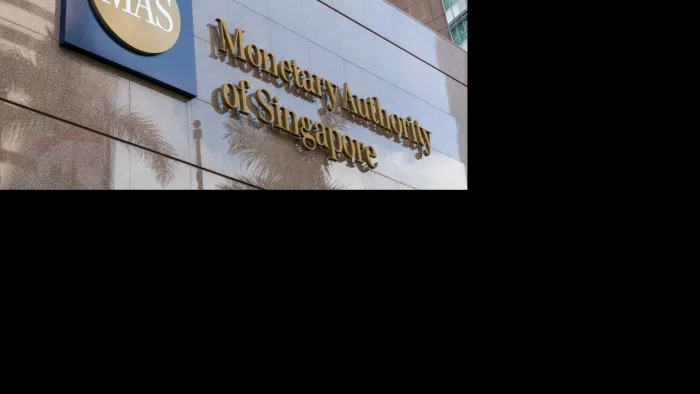
Budget 2023: Which sectors will be the hardest hit by the 2023 budget measures?
Real estate sector will be mildly hit whilst global firms may expect problems from corporate tax.
Whilst Valentine's Day may be a day for couples to celebrate, the Singaporean government presented an unusual gift to its citizens in the form of the budget.
Deputy Prime Minister Lawrence Wong said the budget revolved around moving forward in a new era.
With two years into the pandemic, the government focused on adjusting taxes, giving grants to help families make ends meet amidst inflation, and offering affordable and accessible housing for Singaporeans.
For analyst, RHB, Singapore is targeting to balance long-term goals for supporting individuals and businesses.
There were adjustments to the permanent GST voucher scheme and Assurance Package to alleviate financial woes of Singaporeans.
But the healthcare, consumer, and recruitment sectors will be the most that will be uplifted from the budget measures. The real estate sector will also see a mild negative impact because of the increased buyer's stamp duty.
Global corporations in Singapore will be hit by the implementation of the minimum effective corporate tax from 2025, RHB also pointed out.
Fairer tax system
The 2023 budget also presented measures to promote a fairer tax system, which includes additional registration fee rates for expensive cars as well as increased BSD rates for luxury properties, UOB said.
Under the budget, the government will adjust the additional registration fee tier for higher-end and luxury cars.
Buyers of cars with an open market value (OMV) of above 40,000 will pay higher marginal ARF rates. For the highest OMV tier, the revised ARF rates will be 320%.
On the BSD for residential properties, the portion of the value of the property in excess of $1.5m up to $3m will be taxed at 5%, whilst that in excess of $3m will be taxed at 6%. The changes will hit 15% of residential properties.
For non-residential properties, the portion of the value of the property in excess of $1m and up to $1.5m will be taxed at 4%, whilst that in excess of $1.5m will be taxed at 5%. These changes will affect 60% of non-residential properties.
Singapore also plans to impose Pillar 2 of the Base Erosion and Profit Shifting Initiative (BEPS 2.0) starting 2025, which will align minimum global corporate tax rates for large multinational enterprise (MNE) groups.
Other taxes include the Domestic Top-up Tax (DTT) which will also be implemented to ensure the effective tax rate for MNE groups in Singapore is at least 15%.
The government will continue to review and update these measures to attract and retain investments while ensuring a fair tax system.



![SBR 5 Lorem Ipsum News 2 [8 May]](https://cmg-qa.s3.ap-southeast-1.amazonaws.com/s3fs-public/styles/exclusive_featured_article/public/2025-05/a_hand_pointing_to_a_futuristic_technology_5b87c9d0e3_3.png.webp?itok=M3Hf-9XR)
![SBR 4 Lorem Ipsum [8 May Top Stories]](https://cmg-qa.s3.ap-southeast-1.amazonaws.com/s3fs-public/styles/exclusive_featured_article/public/2025-05/a_hand_pointing_to_a_futuristic_technology_5b87c9d0e3_2.png.webp?itok=2m5Wl0MX)


![Exclusive three SBR 12 Lorem Ipsum [8 May]](https://cmg-qa.s3.ap-southeast-1.amazonaws.com/s3fs-public/styles/exclusive_featured_article/public/2025-05/a_hand_pointing_to_a_futuristic_technology_5b87c9d0e3_11.png.webp?itok=8kn_UIfA)
![SBR 3 Lorem Ipsum [ Exclusive 2]](https://cmg-qa.s3.ap-southeast-1.amazonaws.com/s3fs-public/styles/exclusive_featured_article/public/2025-05/a_hand_pointing_to_a_futuristic_technology_5b87c9d0e3_1.png.webp?itok=YCyjLegJ)
![SBR 2 Lorem Ipsum [8 May]](https://cmg-qa.s3.ap-southeast-1.amazonaws.com/s3fs-public/styles/exclusive_featured_article/public/2025-05/a_hand_pointing_to_a_futuristic_technology_5b87c9d0e3_0.png.webp?itok=_cKD-29o)

![Video [Event News]](https://cmg-qa.s3.ap-southeast-1.amazonaws.com/s3fs-public/styles/event_news_featured_article/public/2025-05/screenshot-2025-05-08-at-4.58.53-pm_0.png.webp?itok=Kud35sMs)
![Event News SBR 9 Lorem Ipsum [8 may]](https://cmg-qa.s3.ap-southeast-1.amazonaws.com/s3fs-public/styles/event_news_thumbnail/public/2025-05/a_hand_pointing_to_a_futuristic_technology_5b87c9d0e3_8.png.webp?itok=DTh_dbYp)
![Event News SBR 9 Lorem Ipsum [8 May]](https://cmg-qa.s3.ap-southeast-1.amazonaws.com/s3fs-public/styles/event_news_thumbnail/public/2025-05/a_hand_pointing_to_a_futuristic_technology_5b87c9d0e3_7.png.webp?itok=vzDAzb6V)
![Event News SBR 8 Lorem Ipsum [8 May]](https://cmg-qa.s3.ap-southeast-1.amazonaws.com/s3fs-public/styles/event_news_thumbnail/public/2025-05/a_hand_pointing_to_a_futuristic_technology_5b87c9d0e3_6.png.webp?itok=jvHFc4P6)
![Video [Event News]](https://cmg-qa.s3.ap-southeast-1.amazonaws.com/s3fs-public/styles/video_thumbnail/public/2025-05/screenshot-2025-05-08-at-4.58.53-pm_0.png.webp?itok=yZnI0YBb)
![Video 1 SBR [8 May]](https://cmg-qa.s3.ap-southeast-1.amazonaws.com/s3fs-public/styles/video_thumbnail/public/2025-05/screenshot-2025-05-08-at-4.58.53-pm.png.webp?itok=9AAeRz_k)

 Advertise
Advertise

